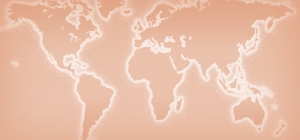

THE patent systems decline in credibility around the world. The one percent or less which holds patent monopolies is no longer taken for granted and therefore left alone. In New Zealand, for instance, the public took amazing action against corrupt politicians (or dumped ones who serve hostile interests) and there's no escaping the scrutiny:
After a hiatus of more than two years, software patents were thrust back into the limelight recently when the government finally announced the second reading of the long languishing Patents Bill.
Those who follow such things will remember the Bill was reported back from the Commerce select committee in 2010. Following detailed consideration of all the issues, the select committee had unanimously recommended that software be excluded from patentability.
"Notice that dissociation from reality in patent lawyers' circles."In the US, patents on software are collapsing in the courtroom, so patent maximalists like Dennis Crouch write on the subject, trying to oppose the 99% who are not patent lawyers as well as the more vocal FOSS proponents such as Dana Blankenhorn.
Robert Stoll, former Commissioner for Patents at the USPTO, does some patents promotion at The Hill. He is in deniability mode, saying: "In fact, the verdict is a sign that the system is far from being broken and is actually working as intended to help ensure innovation and competition for the benefit of consumers."
What utter nonsense; he contradicts evidence-based studies and articles. Other pro-patents circles weigh in, only to be constantly rebutted by the majority. ECT gave a platform to Raymond Van Dyke, "a software patent attorney, educator and consultant in Washington, D.C." He says:
In time, software patent controversies will diminish as the major players learn to coexist, e.g., through cross-licensing. We are now in the midst of a cutthroat time when major players fight. The U.S. patent system is not evil. Software patents are not evil or unjustified. If a software patent is dubious, the patent system provides many avenues to invalidate it.
"Once you reach a certain size, you become more of a target," Alan Schoenbaum told us in a recent interview. Schoenbaum is the general counsel of Rackspace, which achieved $1 billion in revenue for the first time last year. He said that patent litigation against the San Antonio company has "accelerated over the last two years."
I missed it when it came out, but the libertarian legal theorist (and my fellow Cato scholar) Richard Epstein had an article last month defending software patents.